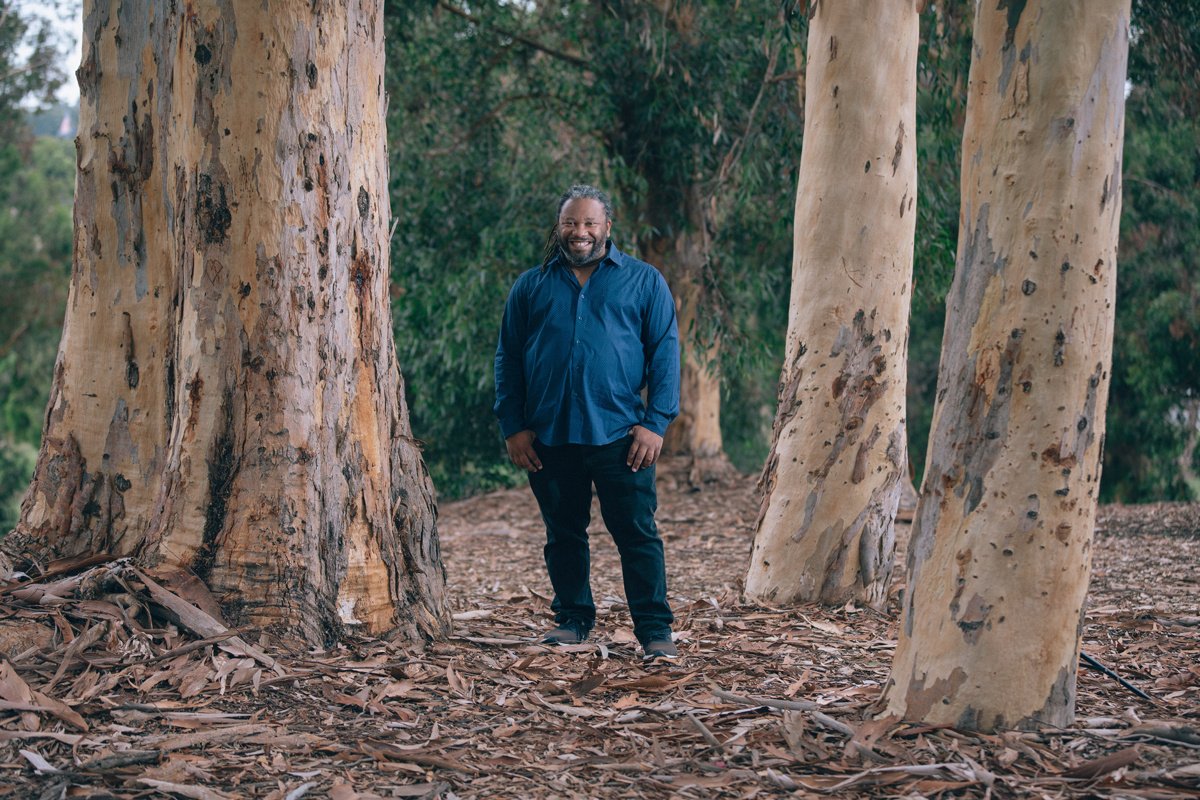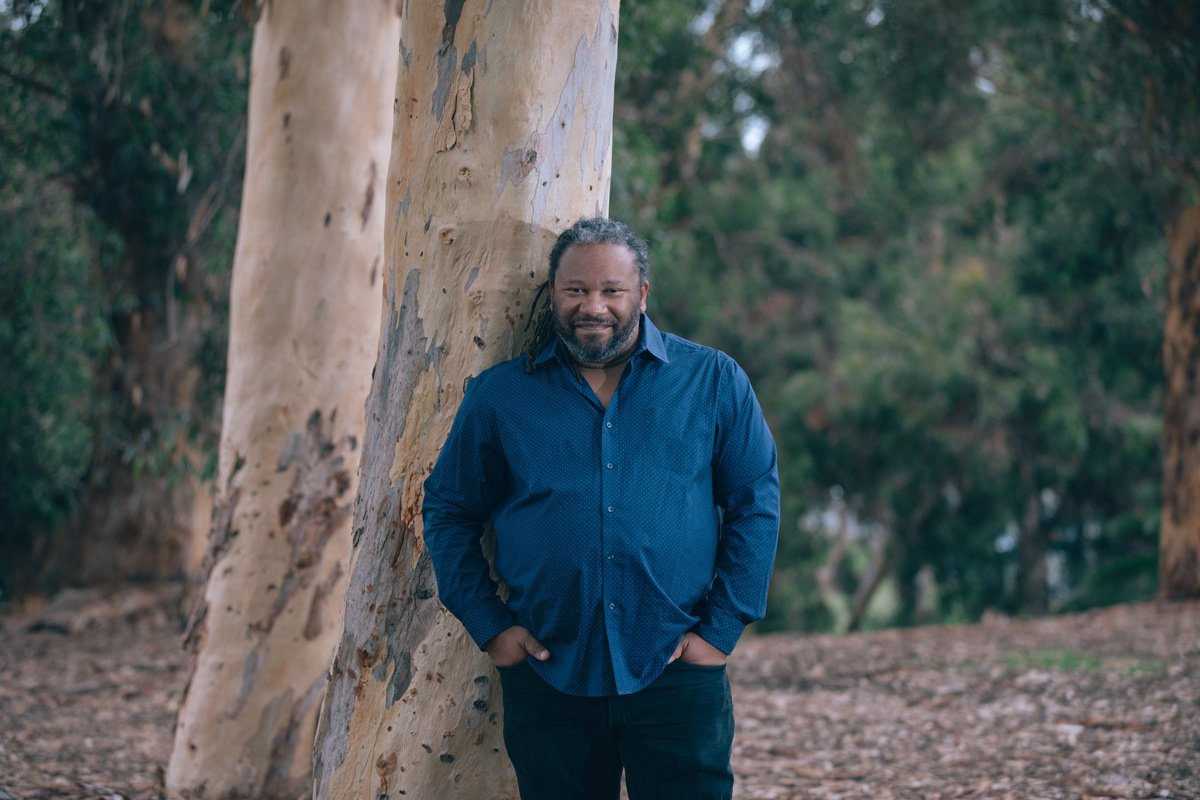How play can make you happy, creative and productive at work
Nov 07, 2023
8 mins
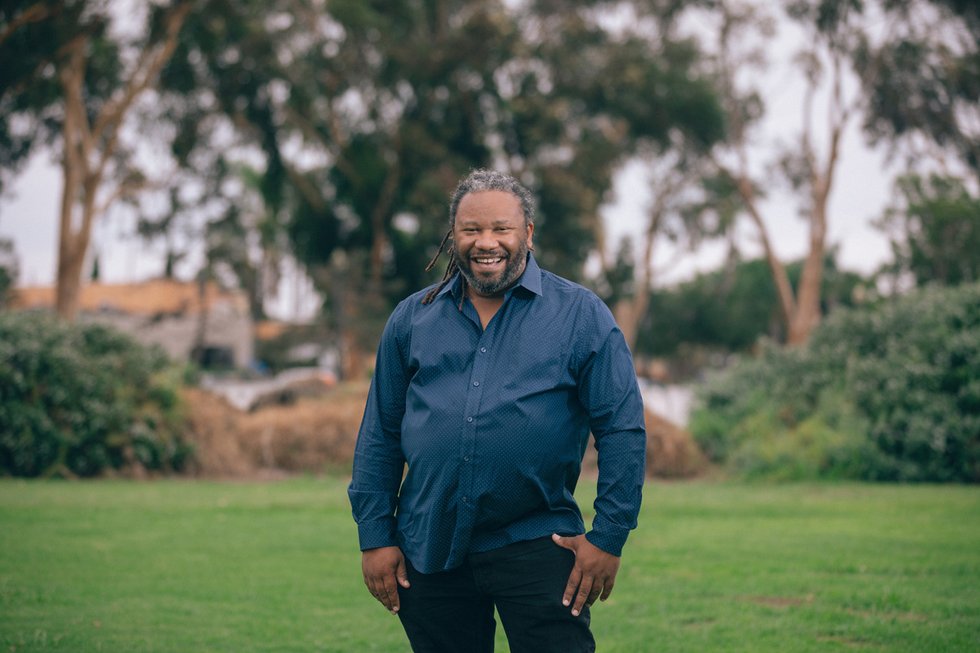
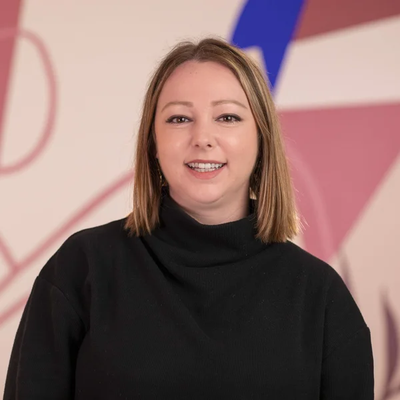
US Editor at Welcome to the Jungle
What does play have to do with work? Quite a lot, according to Gary Ware, the founder of Breakthrough Play and author of Playful Rebellion: Maximizing Workplace Success Through the Power of Play. Far from being a waste of time or a distraction, Ware says play can break the monotony, stimulate creativity, and boost productivity. Ware sees play not simply as something to do in our leisure time but as a tool for personal and professional development. Welcome to the Jungle tracked down Ware so that we can understand how to break free from restrictive corporate norms,and inject joy and creativity into our workplaces.
What is ‘playful rebellion’ and how can it reshape professional norms and interactions?
In today’s digital age, the boundaries between work and personal life are increasingly blurred, resulting in many workers exceeding the traditional 40-hour week. This lack of balance can lead to mental health issues and widespread burnout. Corporate norms often exacerbate this problem, as they traditionally emphasize a strict separation of professional and personal personas, which can hinder genuine connection with colleagues.
So, why not rebel against this status quo? That’s where my idea of a ‘playful rebellion’ comes in – it’s a shift towards incorporating play and playfulness into our workplaces to remedy this imbalance. This isn’t about neglecting work responsibilities or reducing your commitment to your ‘dream job,’ but rather about incorporating elements of play into the workplace to balance a work-dominated life.
This challenge isn’t simply rebellion for its own sake. This is where the concept of a ‘playful mindset’ comes in. A playful mindset means that while we acknowledge the seriousness of our work, we don’t take ourselves too seriously. It’s a purposeful shift to break free from the constraints of corporate norms, enabling more authentic relationships and fostering a healthier work-life balance. The aim is to create an environment where everyone can be their best version. Doing so can make our work experiences more enjoyable, fulfilling, and, ultimately, more productive.
What is your understanding of ‘play’? How might it be seen in practice at work?
Play is a freely chosen, intrinsically motivated activity conducted in a relaxed, non-stressed state, structured by self-created rules, and driven by enjoyment. I like to use a quote from Michael Parsons to define play: “Play functions to sustain a paradoxical reality where things can be real and not real at the same time.” It’s an activity that sparks joy without focusing on the outcome and is always about the process and never the end result. Play is very personal; one person’s play will be different from someone else. Our perception of play needs to be redefined beyond mere silliness. It’s often perceived as frivolous or childlike, but it’s a vital mechanism for growth and bonding that extends into adulthood. The point of play is to recharge so you can dive back into your work revived and able to focus.
Individual play could look like doodling during a break, engaging in a calming mini-game, walking around the block or office, reading a quick passage from a fiction book, or doing chair yoga exercises. Personally, I enjoy setting aside 10 to 15 minutes to play with Lego without an end goal in mind. The more wholeheartedly engaged you are, the better. That means letting yourself do what you really love to do. It’s not just another thing to check off your to-do list. It’s all about listening to your body.
Team play, on the other hand, could involve improvisation games or brainstorming sessions that enhance creativity and collaboration. These playful team exercises, such as role-switching or group learning activities, can solidify team bonds, promote openness to new ideas, and provide fresh perspectives, fostering a shared sense of achievement.
How does play cultivate better team dynamics? How can playful interactions enhance unity and cooperation among colleagues?
Traditional work norms lead us to put up barriers that reduce our ability to genuinely connect with colleagues. Research indicates that sharing personal aspects of ourselves fosters better relationships. But if we constantly guard ourselves, adhering to certain ‘professional’ behaviors, we hinder the opportunity to truly connect. Play offers the quickest route for people to form meaningful connections, complementing its role in fostering trust.
Play lets us temporarily drop the roles, identities, and stories that separate us from each other. Consequently, this enhances interpersonal relationships, team dynamics, and collaboration. More specifically, play fosters an atmosphere of psychological safety. Such environments encourage individuals to freely express their ideas, make mistakes, and learn without the fear of being judged or penalized, a critical factor in nurturing productive and innovative teams. I believe that teams that play together, stay together.
I use the acronym P-L-A-Y, which serves as a solid framework for a healthy, playful workplace. Here, ‘P’ stands for psychological safety, ‘L’ for listening, ‘A’ for adaptability, and ‘Y’ for ‘yes-and’ (an improv concept of accepting and building on others’ ideas). Encouraging a playful atmosphere where teams can tap into their playfulness and exercise their creativity leads to remarkable innovations, and fosters creative thinking and empathy toward others’ perspectives.
Could play also contribute to a more inclusive working environment? How might playful interactions help with cultural, age-related, and professional differences within diverse teams?
In Jane McGonigle’s book Superbetter: A Revolutionary Approach to Getting Stronger, Happier, Braver and More Resilient - Powered by the Science of Games, she references work by social scientists at Nanyang Technological University in Singapore where older, lonely individuals were paired with young people lacking mentorship. They were asked to spend an hour a week together for a month. The group assigned to play Nintendo Wii, a highly interactive game, ended up having a stronger connection, not just with their partners but with their partner’s demographic group overall. This illustrates how play can positively shift our worldviews and make us more open to different people and ideas.
Participating in shared play activities in diverse work environments can help break down preconceived beliefs and biases. As we engage in the rules of the game, we often create shared emotional experiences that can enhance our sense of connection with colleagues. Such positive experiences can foster a deeper appreciation for those around us, extending beyond the game and into our work interactions. Consequently, play can nurture inclusivity and diversity of thought by increasing our empathy towards our coworkers, thus making us more receptive to their ideas and perspectives.
To actively bring diversity into the picture, I often highlight the improvisational concept of ‘Yes-and.’ In an improv scene, this concept means accepting your partner’s statement (the ‘yes’) and then building on it (the ‘and’). Translated into a work setting, this does not mean we must agree with every idea but rather acknowledge and build upon it. It’s about embracing positivity and recognizing a person’s humanity and contributions. The ‘Yes-and’ mindset invites all ideas and people, bolstering workplace diversity and inclusivity.
You say play stimulates creativity at work, how does that happen?
I frequently challenge individuals, particularly those whose roles require creativity and innovation, to identify when they generate their best ideas. Often, it’s not during a scheduled brainstorming session but rather leisurely activities such as taking a shower, walking, or engaging in a hobby or sport. These moments of play and rest unlock our creativity more effectively than in conventional, more pressured environments.
Companies often emphasize the importance of innovation and creativity yet fail to provide the conducive environment necessary for these traits to thrive. Creativity can’t flourish in a stress-ridden environment; it requires space, a receptive mindset, and, of course, psychological safety. Our brains can’t access their creative potential in a fight-or-flight state. The power of play provides the necessary rest and stimulates our minds to continue working on complex problems even when we step away from work.
You mentioned the significance of rest and play. How do they interact and contribute to a productive work environment?
Our modern lives often feel like a never-ending workday, with little opportunity for true rest leading to mental health issues and burnout It’s common for people to find themselves answering calls and checking emails late into the night. While there’s a place for this kind of commitment, it deprives our bodies of the chance to rejuvenate if it becomes the norm. With a playful mindset, we acknowledge and value the importance of rest and play in our lives.
To truly rest, I believe in a three-tiered approach: Macro rest, getting quality sleep, and micro rest, which is brief moments of relaxation throughout the day that increase our stamina and offer a mental refresh. This is where play can be a big asset. ‘Meso’ rest is a third form that involves stepping away from work for a substantial period, whether in the form of a sabbatical, a vacation, or even just taking a half-day off on a Friday during the summer.
It’s important to note that not all ‘rest’ activities are equal. For instance, checking emails or scrolling on social media may seem like downtime, but they don’t provide the kind of energy renewal we need. Play can serve as a form of rest; however, play isn’t always restful – it depends on the nature and intensity of the activity, as well as the individual’s mindset. For instance, forced or overly competitive activities may feel like something other than play. Authentic play is entirely voluntary, more about the journey than the destination, and is a deeply individualized concept. It’s crucial to discover your own unique style of play.
Could you share some practical ways to integrate elements of play and rest into our habits to boost mental wellbeing?
Adding play and rest to your daily routine is not merely a supplement to occasional wellness initiatives but an essential daily practice. For example, during the pandemic, Microsoft conducted research on its employees’ cognitive energy levels during successive meetings. They discovered that fatigue began to set in by the fourth consecutive meeting. However, those who took short three to five-minute breaks could maintain their cognitive energy even through the fifth meeting, highlighting the critical role of regular, high-quality breaks, which could also be considered as ‘play.’
In his book Tiny Habits, Stanford researcher BJ Fogg presents a practical method for integrating relaxation and play into our daily routine, which I have adapted to make the incorporation of play more systematic and straightforward. He recommends tying specific tasks to enjoyable activities that trigger a positive emotional reaction. For instance, listening to a favorite song, performing a brief mindfulness exercise, or sketching a doodle after completing a report can serve as refreshing and energy-restoring activities, turning a mundane or ‘boring’ task into something more fulfilling and fun.
Celebrating even minor accomplishments helps reinforce the positive neural associations with these actions, further encouraging their repetition. A key aspect of this approach is the creation of a self-reinforcing cycle. We promote this positive recurrence by repeatedly signaling to our brains that these behaviors are beneficial, similar to how we celebrate children’s progress and encourage their growth. Isn’t it time we celebrated our accomplishments as adults too? Integrating fun elements into everyday tasks and rewarding positive behavior fosters a positive mindset, helping perpetuate healthy habits. This approach can yield tangible benefits, such as heightened energy and improved focus.
What steps can we take to promote the adoption of these ideas? How might we overcome concerns about being seen as unproductive?
While leadership demonstrating this behavior is essential, each individual also holds the power to prioritize their own self-care. However, there’s a catch. While many companies try to model themselves after big tech firms by incorporating playful elements like ping pong tables, they often lack usage due to insufficient psychological safety. Those who use these facilities can be perceived as unproductive. Organizations need to foster a culture where taking breaks for rejuvenation is seen as necessary rather than frivolous.
If such practices are unfamiliar in your workplace, highlighting the measurable benefits and positive experiences, especially how they reduce stress, boost creativity, and enhance resilience, can inspire the organization to adopt this approach more widely. Doing so fosters a culture that values rest, play, and celebration, all essential for sustaining productivity and nurturing employee well-being.
Photo: Oliver Asis for Welcome to the Jungle
Follow Welcome to the Jungle on Facebook, LinkedIn, and Instagram to get our latest articles every day, and don’t forget to subscribe to our newsletter!

More inspiration: Inspiring profiles
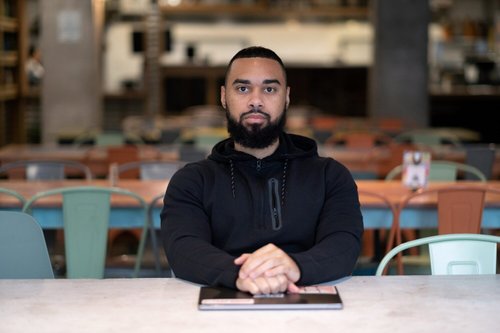
Be real, get ahead: The power of authenticity in your career
Pabel Martinez shares insights on how to allow yourself to be yourself, find your voice, and deconstruct stereotypes at work.
Apr 25, 2024

The professionalism paradox: Navigating bias and authenticity with Pabel Martinez
Pabel Martinez challenges the conventional norms of professionalism by unraveling the complexities of workplace discrimination.
Mar 11, 2024
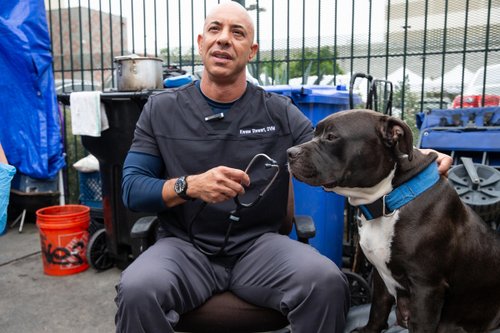
Project Street Vet: Caring for the unseen paws of Skid Row
Providing vet-to-pet care in some of California's largest homeless communities, Dr. Kwane Stewart shares the ups and downs of his remarkable work.
Aug 29, 2023
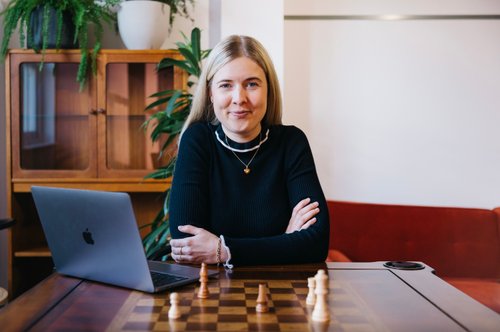
Girls learn how to have fun – and funds – by investing
A Danish trio is fighting gender inequality... on the stock market. We had a chat with one of the co-authors of the book Girls Just wanna Have Funds
Jan 30, 2023
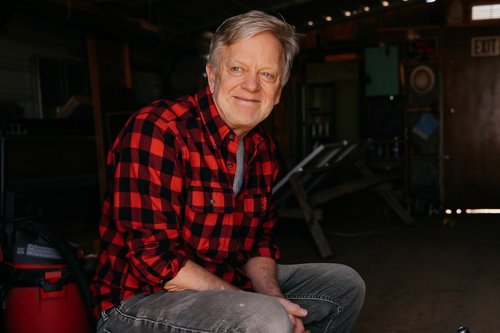
A conversation with Ted Conover, master of immersive journalism
We spoke to America’s reigning master of immersion reporting about political polarization, social media and how to hack it as a writer today
Jan 26, 2023
The newsletter that does the job
Want to keep up with the latest articles? Twice a week you can receive stories, jobs, and tips in your inbox.

Looking for your next job?
Over 200,000 people have found a job with Welcome to the Jungle.
Explore jobs
